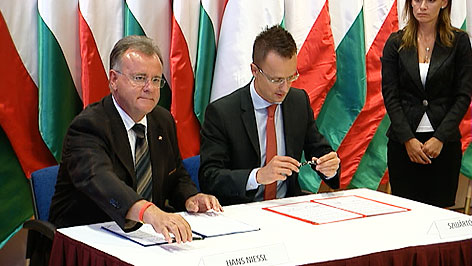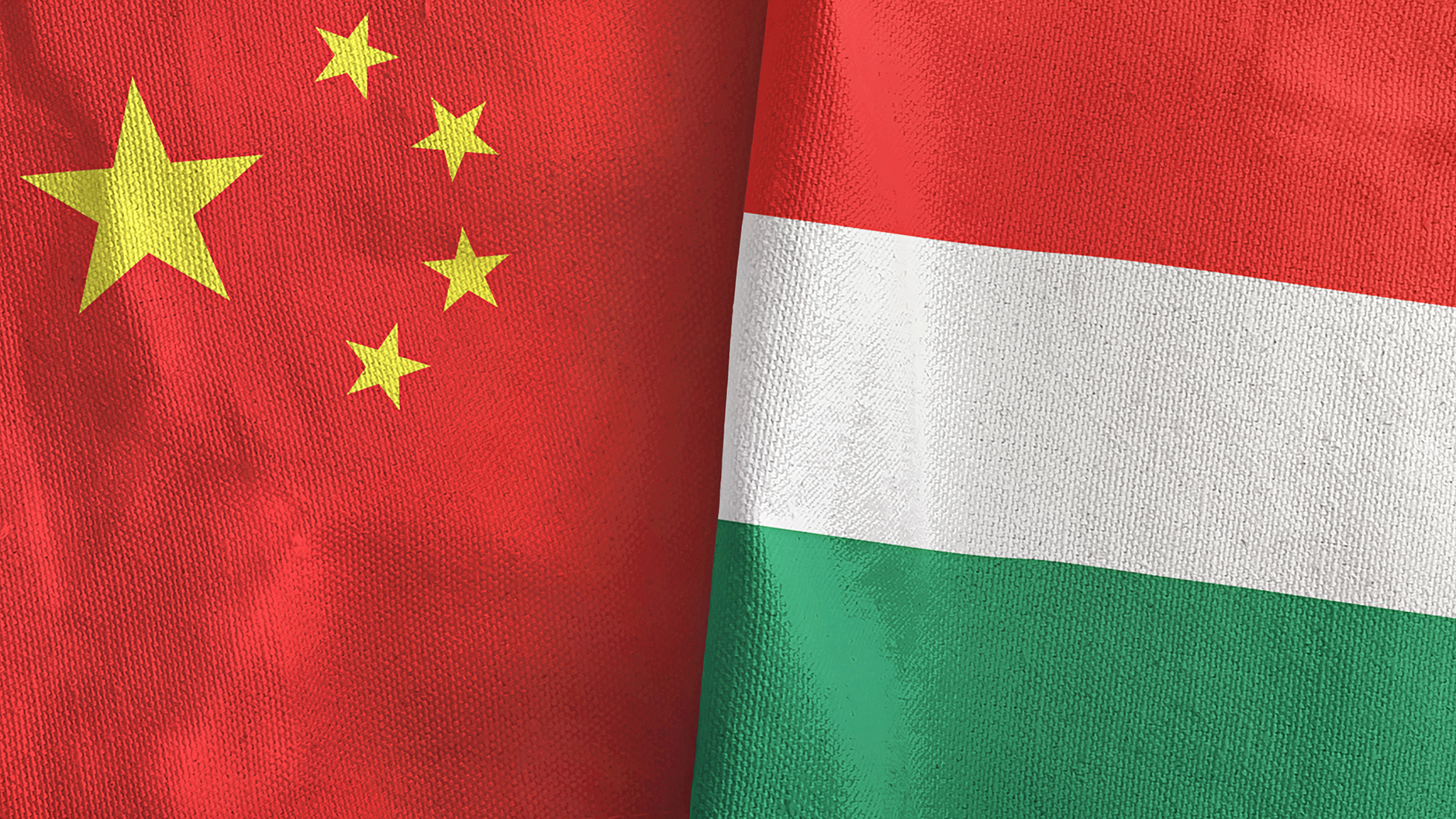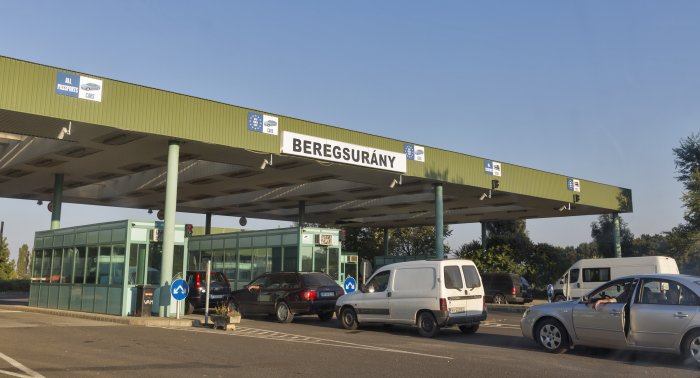Trans-border roads between Hungary, Burgenland to reduce “economic disadvantage”

Talks since February between Hungary and the Austrian state of Burgenland on cross-border infrastructure projects took a big step forward in Győr yesterday, with Foreign Trade Secretary Péter Szijjártó and Burgenland governor Hans Niessl signing a declaration of intent to develop transportation ties.
At stake are European Union funds available in the 2014-2020 European Union budget period for 20 new roads crossing the Austria-Hungary border. The memorandum signed yesterday will provide for the creation of feasibility studies for such a project.
Szijjártó and Niessl both stated that all extant border crossings between Austria and Hungary should be made barrier-free by 2015, but the Hungarian government is seeking to install more border-crossing points.
In announcing the document, Szijjártó pointed out that border-crossing checkpoints between Hungary and Austria are situated an average of 14 kilometers, “an economic disadvantage” against more open Western European international borders that could be solved with the Hungary-Burgenland agreement. The Austria-Hungary border runs 336 kilometers in total.
Niessl defended accusations from his country’s media that he and his Burgenland government were acting too cautiously in negotiations with Hungary on the subject, insisting that thoroughness is important. “In cross-border cooperation, it doesn’t matter that I am a diplomat or representative of the European Union. I am a representative of Burgenland,” he said. “My aim to achieve good transport infrastructure for Burgenland. As cross-border cooperation is important and necessary … this is my issue.”
As part of the agreement, a joint project will be established for development of rail transport. Approximately 30% of resources between the countries in the agreement will be devoted to the construction of new roads. The feasibility studies are scheduled for completion on September 1.
SUPPORT THE BUDAPEST BUSINESS JOURNAL
Producing journalism that is worthy of the name is a costly business. For 27 years, the publishers, editors and reporters of the Budapest Business Journal have striven to bring you business news that works, information that you can trust, that is factual, accurate and presented without fear or favor.
Newspaper organizations across the globe have struggled to find a business model that allows them to continue to excel, without compromising their ability to perform. Most recently, some have experimented with the idea of involving their most important stakeholders, their readers.
We would like to offer that same opportunity to our readers. We would like to invite you to help us deliver the quality business journalism you require. Hit our Support the BBJ button and you can choose the how much and how often you send us your contributions.









